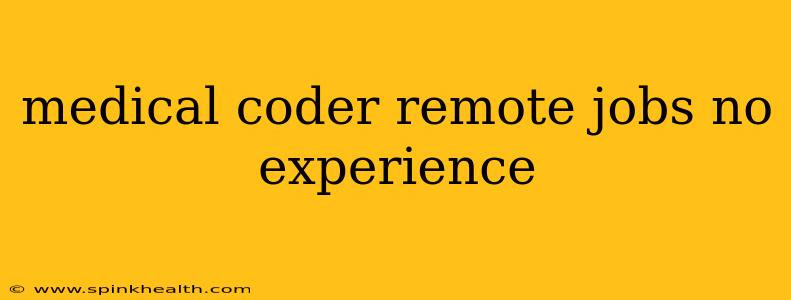Cracking the Code: Your Journey to a Remote Medical Coding Career (Even Without Experience!)
The hum of the computer, the quiet satisfaction of organizing complex medical information, the knowledge that your work directly impacts patient care – this is the allure of a remote medical coding career. But what if you don't have any experience? Don't worry; this isn't an insurmountable obstacle. This guide will navigate you through the path to securing your dream remote medical coding job, even as a complete beginner.
My name is Sarah, and I've been a medical coder for over a decade, working both in-office and remotely. I've seen firsthand the transformation of the industry and the increasing demand for skilled remote coders. I'll share my insights and experience to help you unlock this exciting career path.
What is Medical Coding, and Why is it Remote-Friendly?
Medical coding is the process of translating healthcare services and procedures into numerical and alphanumeric codes. These codes are used for billing, data analysis, and overall healthcare management. The beauty of this field is its adaptability to remote work. Many coding tasks can be accomplished with a reliable internet connection, a computer, and specialized coding software. This flexibility is increasingly attractive to both employers and employees.
Can I Get a Remote Medical Coding Job Without Experience?
Yes, absolutely! While experience is always beneficial, many employers are willing to invest in training entry-level candidates. The high demand for medical coders often outweighs the immediate availability of experienced professionals. However, you'll need to work smart to stand out.
How Can I Prepare for a Remote Medical Coding Job with No Experience?
This is where proactive preparation makes all the difference. Here's your roadmap:
-
Obtain a Medical Coding Certificate: Several reputable online schools and community colleges offer affordable and convenient medical coding certificate programs. These programs provide a solid foundation in coding principles, medical terminology, anatomy, and physiology. A certificate significantly strengthens your application.
-
Master Medical Terminology: This is the language of medicine, and it’s crucial for understanding the information you'll be coding. Invest time in learning medical prefixes, suffixes, and root words. Flashcards and online resources are invaluable tools.
-
Familiarize Yourself with Coding Systems: The two primary coding systems used in the US are the ICD (International Classification of Diseases) and CPT (Current Procedural Terminology). Understanding these systems is fundamental to your success.
-
Build a Strong Resume and Cover Letter: Highlight your education, relevant skills (even if they seem unrelated, like meticulous attention to detail or strong organizational skills), and your eagerness to learn. Your cover letter should express your passion for healthcare and your commitment to becoming a skilled medical coder.
What are the Best Ways to Find Remote Medical Coding Jobs for Beginners?
-
Online Job Boards: Sites like Indeed, LinkedIn, Monster, and ZipRecruiter often post remote medical coding opportunities. Use specific keywords like "entry-level," "remote," "medical coder," and "training provided."
-
Company Websites: Directly searching the websites of healthcare companies, billing services, and insurance providers can unearth hidden remote opportunities.
-
Networking: Attend virtual networking events or join online medical coding communities. Networking can provide invaluable insights and potential job leads.
What Software Should I Be Familiar With?
Many medical coding jobs utilize Electronic Health Records (EHR) systems. While specific software varies by employer, familiarizing yourself with common EHRs will benefit you. Research popular options and explore any free tutorials or demos available.
What Salary Can I Expect as a Beginner Remote Medical Coder?
Entry-level salaries vary by location and employer, but you can expect a competitive starting wage. The more experience and certifications you gain, the higher your earning potential will be.
Are there any specific skills needed beyond coding knowledge?
Absolutely! Excellent attention to detail, strong analytical skills, the ability to work independently, and proficient computer skills are all essential. Time management is also critical in this fast-paced field.
Embarking on a remote medical coding career might seem daunting, but with focused preparation and perseverance, it’s entirely achievable. Remember, your passion for healthcare and your commitment to learning are your greatest assets. Good luck on your coding journey!

